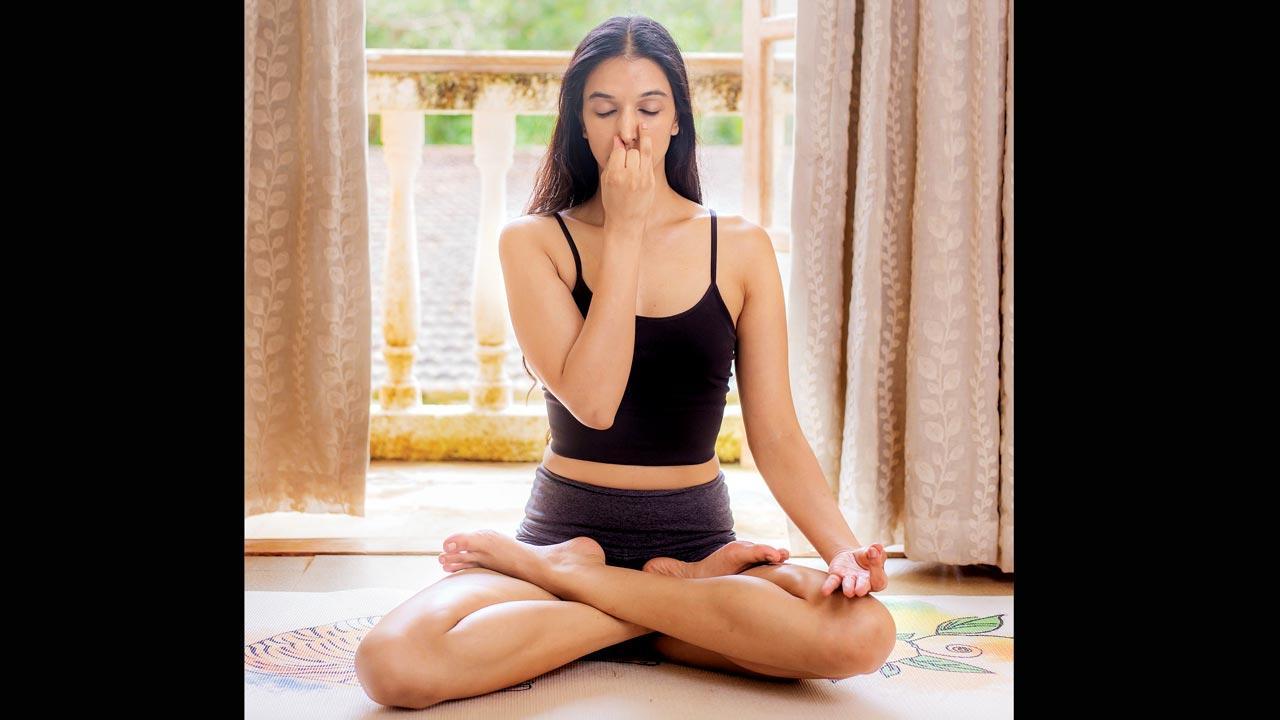With reports of people undergoing unpleasant experiences on taking up mediation, it’s clear that the pandemic’s favourite peace tool is an acquired taste

Yogini Ira Trivedi says when done gradually and correctly, meditation is good for stress management and the foundation to higher states of consciousness
To avoid spiralling into full-blown anxiety during the Coronavirus pandemic, many of us have turned to meditation. The practice has increased by nearly 3,000 per cent this year around the world, showed a recent report by the fitness company Fitbit, that assessed users’ activity through 2020. But, not everyone is benefiting from it.
ADVERTISEMENT
Researchers at the University College London (UCL) in the United Kingdom, Witten/Herdecke University in Germany, and the University of Ljubljana in Slovenia discovered that more than 25 per cent of people who meditate on a regular basis have experienced an unpleasant psychological event as a result. They obtained the results using a questionnaire shared with 1,232 people who had been meditating for at least two months.
Rajan Navani, Vice Chairman and Managing Director, Jetline Group of Companies, launched the app, ThinkRight.Me, to introduce people to the idea of mindfulness
Yogini and author Ira Trivedi isn’t surprised. She has come across cases of students complaining of unpleasant psychological experiences. “Lack of concentration, increased negativity, and hyperactivity can be some of the common symptoms caused by taking up meditation without prior training or the right breathing practice,” she says. Explaining why this happens, Trivedi says, “We don’t realise it, but meditation allows us to become aware of the thoughts and feelings of our subconscious. People who have experienced trauma in their lives can carry this with them even when they are awake; it could be affecting their life on a daily basis, without them knowing.” Meditation is a mental exercise that involves the practitioner attempting to focus on a specific thing, or what is called the object of meditation. In practice, this means being mindful of one’s respiration or the repetition of a particular word or sound. Trivedi typically begins her sessions with a few moments of quietly centering oneself. “I often see beginners hopping onto their yoga mats with lots of ‘stuff’ going on in their heads. If you are a beginner, I suggest doing two or three breathing exercises at the start of your meditation session to set the tone for success. Then, I use the Pranayama practice to get them focused followed by an intense asana practice to prepare for meditation and to replenish their energy. To finish, we lie down and relax in savasana. This keeps students energised.”
Sanjay Sehgal is the director at Heartfulness Institute, a volunteer-based non-profit organisation, focused on meditation, relaxation, yoga and spirituality. He says the first question meditation aspirants must ask themselves is, what is the purpose behind it? “It’s like a dietician telling you to eat more carbs if you’re a runner, or suggesting an increase in your intake of leafy veggies if you lead a sedentary lifestyle. Similarly, there are different types of meditation too, and therefore, you need to know why you’re doing it.” Ninety per cent of the people he meets are craving peace of mind. At the institute, participants are taught “cleaning” of the mind, an activity to remove the accumulated unpleasant impressions of the day. “All of us have hot buttons, where certain situations, and even people trigger a negative emotional reaction. These form an imprint on the mind. In this process, we help clean the emotional memory of these, so that the situation doesn’t elicit the same unpleasant reaction the next time around.”
The short mindfulness sessions focus on different aspects such as motivation, confidence, peace of mind and stress
According to Sehgal, deeper meditation is aimed at altering your states of consciousness and deeper understanding of yourself—something that’s not taught to beginners.
In December 2018, Rajan Navani, Vice Chairman and Managing Director, Jetline Group of Companies, launched the app, ThinkRight.Me, to introduce people to the idea of mindfulness. “We look at meditation a little differently. You become meditative only when you become mindful. It means having greater control over your mind and being able to strengthen it. The moment you’re able to be aware of your thoughts, your speech and action will change, and that’s how you transform yourself.”
Considering it’s the human mind that we’re discussing, it’s not easy to compartmentalise the stages of meditation, says Trivedi. “The first purpose of meditation is to breathe correctly. Then sustained concentration is necessary to go further. You’ll be able to understand yourself in a way that was impossible before you started practising meditation. In each individual, the experience is different.” Trivedi cautions against jumping headlong into meditation. “Meditation is not something you force yourself into. You ease into it.”
How to meditate
First, find somewhere to meditate, says Trivedi. “The place needs to be clean and tidy, with nothing hidden that might distract the mind on its inward journey.”
Practice Pranayama. Pranayama is the yogic technique of breath control. It prepares the mind for meditation. The goal should be to count one’s breath, note the distractions and leave the distraction alone by bringing one’s attention back to breath. As you focus on your breath, you will notice that other sensations exist but they appear in the background and are impermanent.
Use sound as a tool to go within. The next step is to focus on one object. It can be a mantra, a sound, or any meditative music, etc. With these tools, you will arrive at a place wherein the senses are drawn inwards.
 Subscribe today by clicking the link and stay updated with the latest news!" Click here!
Subscribe today by clicking the link and stay updated with the latest news!" Click here!






